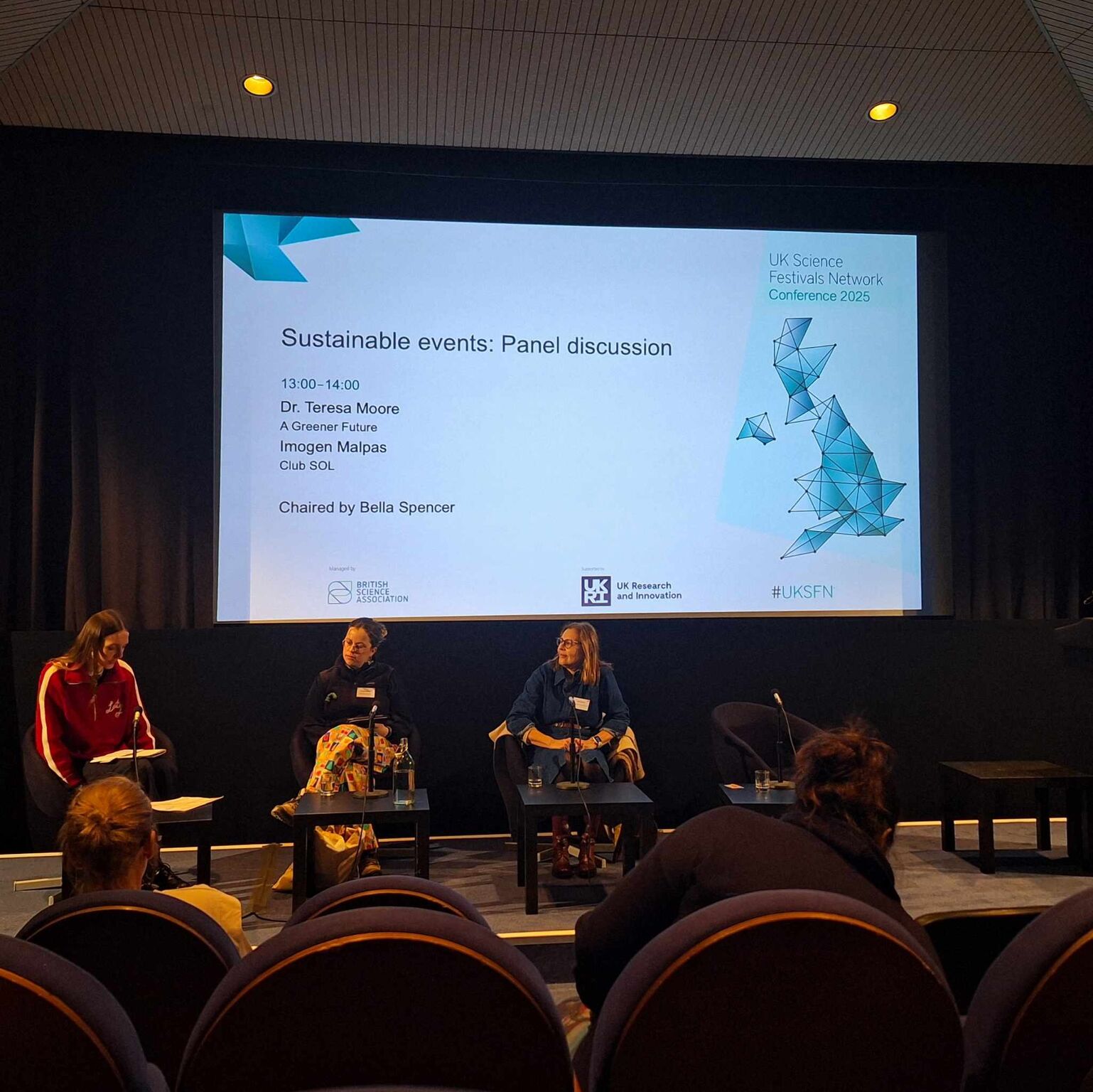The UK Science Festivals Network – a consortium of science festivals and event organizers from across the UK, managed by the British Science Association – recently hosted its 2025 conference at the Watershed in Bristol. Engagement Manager, Dreolin Fleischer, and Regional Engagement Assistant, Catherine Hurcombe, attended the conference ahead of Exeter’s upcoming community festivals, including FUTURES 2025.
The focus of this year’s conference was science festivals as agents of change, and each session explored different ways that science festivals can not only adapt to a changing social and economic climate, but how they can engage with and address global issues.
Beginning with a keynote discussion between panellists from the UK Government’s Department for Culture, Media and Sport, the University of Bristol, and the Association for Science and Discovery Centres, the event examined how science festivals can integrate with communities – often in the face of limited funds. Other sessions explored how science festivals can improve their sustainability measures, generate public enthusiasm through art, and collaborate with activists in a positive and meaningful way.
The event was attended not only by University representatives, but by industry stakeholders and professionals, including scientists with an interest in public engagement, event coordinators, and interdisciplinary artists. With activities ranging from hands-on arts and crafts workshops to round-table discussions, each session was built around valuable case studies from the field.
London-based organization, Club Sol, explained their work connecting people to the planet through creativity – such as a hugely successful club night that raised awareness of the climate crisis! Speakers from the University of Warwick discussed their Coventry CollaborACTION project, which draws together Coventry’s policymakers, creatives, researchers, and volunteers to create meaningful change driven by community need.
Widening participation in science festivals is also a topic of importance to UKSFN who are collaborating with the University of Central Lancashire to develop a best-practice framework. One session was dedicated to collecting data from conference attendees about this issue through a survey and roundtable conversations.
Another session was dedicated to creating the right environment for collaboration, engagement and creativity which takes place in a safe and inviting space for all. The CEO of Bristol Pride, a Science Communicator and EDI consultant, and the Director at Bristol Disability Equality Forum spoke about not making assumptions, accepting advise, reach out to knowledgeable VCSEs and a problem avoided is better than a problem dealt with in creating inclusive spaces and experiences.
By bringing together these different groups, the UK Science Festivals Network has encouraged conversations that will allow participants to learn from one another’s experiences, and bring a fresh perspective into future public science events. We look forward to using this newfound knowledge to enrich our own festival activities!
You can learn more about the UK Science Festivals Network here.

